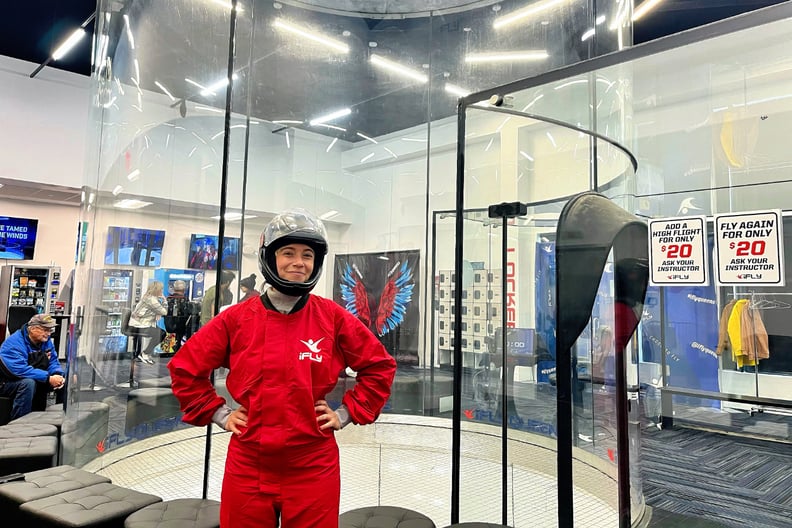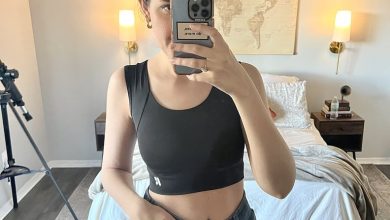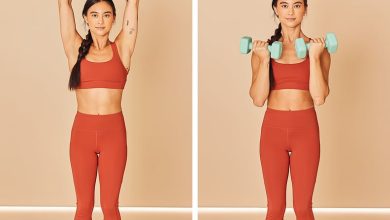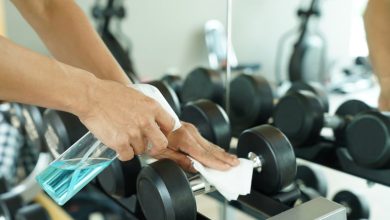Does Indoor Skydiving Feel Like the Real Thing? Here’s the Truth

The first time my boyfriend motioned towards the iFLY building in Queens, NY, on our drive home from his parents’ house, I felt a pang of anxiety. “I want to try that with you one day!” he said excitedly, to which I immediately scoffed, “Yeah, right.” While I love most rollercoasters, I assumed indoor skydiving would feel like jumping off a cliff into the ocean or actually, you know, jumping out of a plane — both of which freak me out and reaffirm my fear of heights.
Little did I know, the iFLY indoor skydiving experience is not at all scary. And while it doesn’t necessarily emulate the thrill of leaping off a moving vehicle 10,000 feet in the air, it does feel like the real thing — at least physically. The biggest difference? iFLY, which opened its first wind tunnel in 1998 and has expanded to more than 80 locations worldwide, boasts an impressive technology system that allows flyers to enter a chamber from the ground, and then enjoy bodyflight. The vertical tunnel produces recirculating wind with four powerful fans at the top that draw compressed air up into a column, and this allows your body to float. Many athletes have taken this a step further by entering into competitive indoor skydiving, which involves completing a certain number of maneuvers in an allotted amount of time.
When I finally built up the courage to book a session at iFLY, I was apprehensive at first, but as soon as I met my instructor and he explained all of this to me, my fear melted away. Ahead, you’ll learn about my experience taking flight for the first time, and I’ll break down answers to some commonly asked questions about the indoor skydiving experience.
About Indoor Skydiving at iFLY
- Flyers must be at least 3 years old, and children under 18 must have a parent or guardian sign a waiver.
- A height requirement of 40 inches tall is only in effect at iFLY Paramus and iFLY NJ Edison — you can fly at any height at all other locations.
- There is a weight limit of 300 pounds, but flyers between 260 and 300 pounds will require an additional evaluation by staff at time of arrival; high flights are only available for those 260 pounds or less.
- All flyers must sign a waiver and watch a preflight video if they are first time flyers.
- The iFLY experience lasts approximately one hour and 30 minutes, including the check-in process. Reservations at all locations are required, and there is a 48-hour cancellation policy.
- While you can attend with friends and family, flyers enter the flight chamber one at a time with the instructor, so you won’t be flying at the same time as the rest of your group.
- Women who are pregnant and people who have injuries, hard casts, or hard prosthetics are not permitted to fly.
- Purchasing a first-time iFLY package includes a training session, all flight gear, flight time in the tunnel (60 seconds per flight), hands-on personal assistance from the instructor, and a personalized flight certificate.
- The driver of the wind tunnel takes photos of each flyer mid-flight, which are available to purchase for digital download immediately following your session.
What I Like About Indoor Skydiving at iFLY
While I felt an undeniable thrill leading up to my first flight, I felt safe thanks to the careful guidance of my instructor Andy Bracco, who was professionally trained by the International Bodyflight Association (IBA), the company that trains and accredits all instructors at iFLY. Bracco has been skydiving nine times and counting, so having him right next to me in the air column the entire time was comforting to say the least. It was also incredibly easy to learn the hand directions, which are given by the tunnel driver mid-flight. There’s one for “relax,” one for “legs straight,” one for “legs bent,” and one for “chin up,” which is really all I had to remember once I entered the chamber.
Once I was horizontal during my first flight, I felt a sense of relaxation wash over me as I gave into the wind and just enjoyed myself. As you can probably tell from the giant smile on my face, the flight was nothing short of fun, and maybe even went by too quickly. I was also delightfully surprised to discover that I felt no sensation of falling or my stomach dropping — I honestly felt light as a feather floating in the air. I can 100 percent promise you this experience will not cause motion sickness, even if you’re super sensitive.
My favorite perk? The photos and videos of myself mid-flight that were delivered to my inbox as soon as I touched down on solid ground.
Does Indoor Skydiving at iFLY Feel Like the Real Thing?
According to Bracco, my flight instructor, jumping out of an airplane feels the exact same way physically as indoor skydiving. (I know, I was surprised by this information and needed convincing, too.) While each flight within the wind tunnel lasts 60 seconds, the free fall portion of jumping out of a plane lasts approximately 45 seconds. Depending on the iFLY package you choose, you can opt for double-length flights to increase your time in the air, but just like real skydiving, all you feel is the wind in your face and zero “stomach drop” sensation.
What Should You Wear For Indoor Skydiving at iFLY?
iFLY suggests wearing well-fitting, casual clothes, including pants and a shirt without a collar. My best advice would be to choose leggings and a tee so that you can easily put on your flight suit over whatever you’re already wearing. The flight suit is equipped with handles at the back that are meant for the instructor to grip during spotting. I had a full day planned with dinner and a show after flying, so I was wearing leather pants and a sleeveless turtleneck during my first go, and this worked perfectly fine. However, if I went back, I’d definitely go for stretch pants instead.
You must wear lace-up sneakers or running shoes, which are required for your flight. Any loose items such as earrings, necklaces, bracelets, watches, rings, and hair accessories should be removed before flying and stowed away in the complimentary locker you’ll have access to during your session. If you prefer to wear goggles, iFLY offers pairs big enough to fit over eyeglasses, but they aren’t required. Finally, your hairstyle must allow for a proper fitting helmet, so folks with long hair are instructed to braid it or keep it in a low bun.
How Much Does Indoor Skydiving at iFLY Cost?
There are many different packages you can choose from at iFLY, and payment is accepted via credit card only. The cost of a package typically starts around $90, which includes two flights for one person. However, this varies depending on the location you’re visiting, day of the week, and whether you have flown before. For example, at the Queens, NY, location, you have the option to purchase a four-pack ($159) or 10-pack for up to five people ($499), and you can tack on a high flight to any session, which costs an additional $20.
If you receive a gift voucher or digital gift card, it does not expire and you can redeem it via the online reservation system when booking your flight. Discounts are also given to military personnel, first responders, medical employees, and educators or government employees and their immediate family. You may also luck out purchasing a discounted package online at Virgin ($105 and up), TripAdvisor ($105 and up), or Get Your Guide ($105 and up).
The Verdict: Is Indoor Skydiving Worth It?
While I definitely think iFLY was worth the price for a first-time experience, I wouldn’t necessarily pay to fly again unless I was increasing my time in the air. Sixty seconds goes by very quickly, and it’s definitely not long enough to practice fine-tuning skills such as turns and control — which is an option for those who are interested. In my opinion, a two-flight package is a unique gift for a first-timer.
Rating:
★★★★☆
Sarah Wasilak (she/her) is the associate director of Shopping at PS. With plenty of experience in the commerce market, a keen interest in SEO, and 10 years as an editor at the brand, she enjoys writing across the lifestyle and health-and-fitness categories. She has bylines at PS, InStyle, Elle, Refinery29, Who What Wear, Elite Daily, Byrdie, and The Quality Edit and aims to amplify minority voices in all her work.



